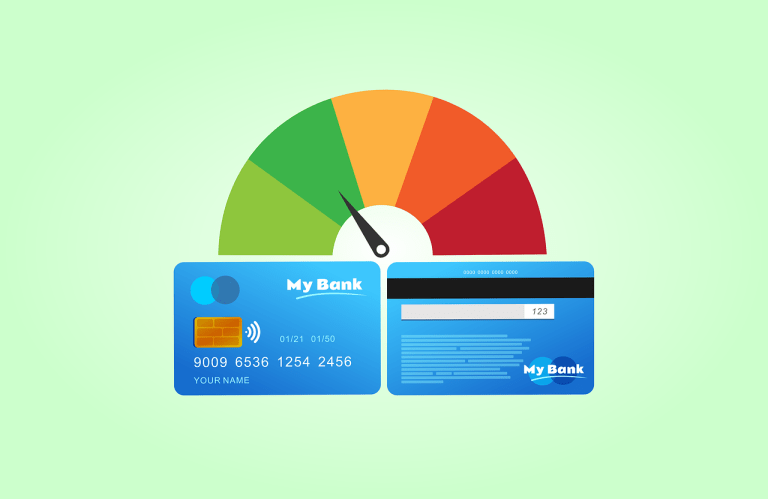Just like your report card keeps track of your academic performance and grades, personal credit is a comprehensive summary of all your financial information that builds up your credit score. A good credit score has its advantages and is a major parameter on which lenders assess the risk of lending you money.
Advantages of a High Credit Score
- Reduced mortgage, credit card, auto, and student loan interest rates: Over the course of the loan, this might save you hundreds of dollars.
- Enhanced credit limits on your credit accounts: This offers you greater freedom, but make sensible use of it.
- Creates a positive impression of your financial situation in the eyes of creditors: This helps with job applications and apartment rentals.
- Increased Approval Odds: Lenders view borrowers with higher scores as more appealing.
- Access to Premium Cards: If you have a high score, you can get access to premium credit cards with special rewards programs, travel privileges, and perks.
- Utilities and Security Deposits: Utility companies and landlords may use your credit score to approve your application or set the size of the security deposit.
- Increased Employment Opportunities: Companies occasionally perform Credit checks as a background screening procedure. You may be able to distinguish yourself from other applicants with a high score.
How to Build and Maintain Your Credit Score
Manage Your Credit
Your responsibility is to manage your credit in a way that favors you and does not sabotage your long-term financial goals. This requires consistent efforts, as your credit score is a tool for reflecting on your records and your willingness and ability to pay in the future. An interest rate higher by 2-3% can build up to a handsome amount at the end of the day or a 20-year mortgage. The same money could have been channelled to more productive areas like education or retirement savings.
The following are some essential tactics for appropriately handling your credit:
- Keep tabs on your expenses: Use spreadsheets or budgeting apps to track all of your transactions, including those made with cash, debit cards, and credit cards.
- Create an emergency fund: To handle unforeseen bills and stay away from credit cards, try to save three to six months’ worth of living expenses.
- Pay more than the minimum: Although paying the minimal balance maintains your account’s integrity, it results in a longer payback period and the accumulation of interest. Consider paying the whole amount due each month.
- Examine your credit reports regularly: Annual Credit Report delivers free credit reports from Equifax, Experian, and TransUnion, the three major credit agencies, every year. Look for errors and promptly report them.
- Utilize credit monitoring services: To keep tabs on your credit score and get alerts about any changes, consider signing up for a paid or free credit monitoring service.
Note down as you spend
It is really important to keep track of all the transactions you have made via credit cards, ATM cards, and the number of checks you have written off. If you lose track of your spending, you are sure to get into trouble later on.
Prepare for emergencies
Have emergency reserves of money in a liquid state so that you can utilize them for dire needs, such as unexpected job loss or health costs. Borrowing money more than you are comfortable repaying is not a wise option.
Don’t keep unnecessary liabilities.
Make it a habit to pay the bare minimum monthly payment you owe your creditors. Consider paying the entire amount every month to reduce any financial charges that may be incurred. Skipping payments is a complete no-no.
Review your credit reports timely.
You should be made aware of the credit reporting errors that can harm your credit score. Your efforts to build up a good credit score can go down the drain if the credit bureaus have mixed up your contact information with other non-credible clients or if you have fallen victim to fraud.
For this purpose, make it a habit to promptly review your credit report every year and report any discrepancies or misquotations of financial information. Ensure there are no incorrect entries in your name of late payments or any default, and the amounts you owe to each account are quoted correctly. You can raise concerns and objections in your report, so review and assess them monthly.
Pay on time
Nothing works more in your favor than timely paying your bills and clearing your dues. On-time payments are like your lifesaver. Payment history ultimately makes a big chunk of your credit score, and you wouldn’t have to negatively affect your score just because of culpable negligence and carelessness. Embrace technology and leave no stone unturned in being punctual in your payments. You can schedule your payments by putting them on auto or even setting text reminders on your cellphone to ensure you don’t leave anything on chance and have the cash on hand a few days before the payment.
You should keep in mind that once your credit score is tarnished, repairing it is like losing weight because it is a time-consuming process, and there is no quick fix for it, as some credit-boosting companies claim. Manage your score with utmost responsibility over time, and don’t let things slip away out of your control before it’s too late to get things back on track. Being aware and responsible for your finances is the first step towards financial stability.
Utilize Technology to Make On-Time Payments
- Configure automatic payments: Arrange your bills to be paid on their due dates automatically. This will prevent late payments, which can lower your credit score.
- Turn on text or email reminders: Many creditors send reminders via text or email when payments are due.
- Look into mobile banking apps: You can quickly check the amount on your account and make payments while on the go by using the mobile app provided by your bank.
Maintain a Low Credit Utilization Ratio
This ratio shows you how much credit you are using in relation to your entire credit limit. You should maintain this at less than 30%. Try using only some of your credit cards at once, and pay off your balances regularly.
Avoid Making Too Many Credit Requests at Once
Your credit record is subject to a hard inquiry each time you apply for a new loan or credit card. These questions can slightly decrease your score. Try to apply for a few lines of credit at a time, even though it could be essential to apply for new credit.
Some pointers for establishing a solid credit history
Further pointers for establishing a good credit history are as follows:
Secured Credit Cards:
- Those with poor credit or no credit history should consider secured credit cards.
- They function by requesting a security deposit, which typically turns into a higher credit limit.
- Upon utilization and timely payments, the issuer may reimburse your deposit and change the card’s status to a standard unsecured credit card.
Become an Authorized User:
- You can benefit from someone else’s good credit history by being added as an authorized user to their existing credit card account.
- However, since their late payments will also appear on your credit report, it’s critical to pick a person you can trust and who handles their credit properly.
Conclusion
Your credit score requires time and constant work to build and improve. Keep going even if you start seeing results immediately. By sticking to these straightforward procedures and exercising patience, you will be well on your way to obtaining financial freedom and a high credit score.






